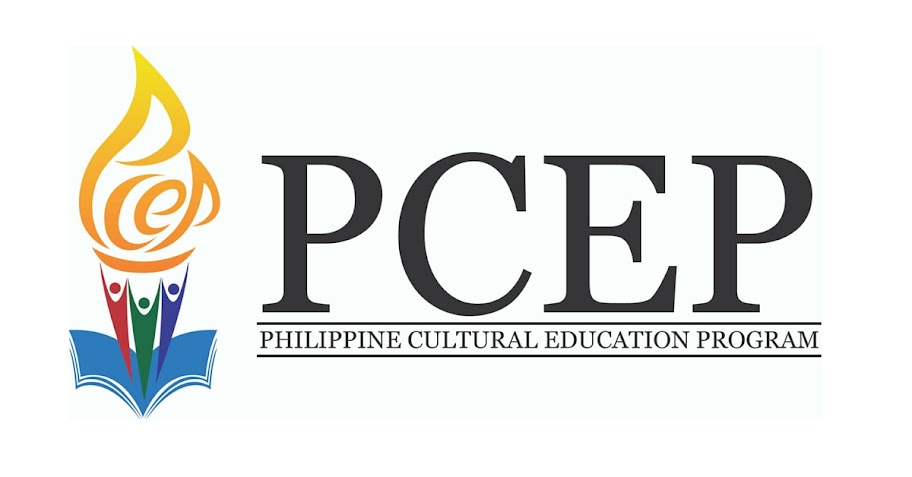Philippine Cultural Education Program (PCEP)
Click the link to view the library: https://philippineculturaleducation.com.ph/
It seeks to develop among Filipinos greater awareness, understanding, and appreciation of their culture and arts, towards the evolution of a consciousness that will improve the quality of their lives.
With the promulgation on 11 August 2001 of Republic Act 9155, also known as “An Act Instituting a Framework of Governance for Basic Education, Establishing Authority and Accountability, Renaming the Department of Education, Culture and Sports (DECS) as a Department of Education (DepEd) and for other Purposes,” cultural education was effectively reaffirmed as an integral part of basic education but administrative supervision of cultural agencies formerly attached to DECS was transferred to the NCCA.

Philippine Cultural Education Program (PCEP) envisions A NATION OF CULTURALLY LITERATE AND EMPOWERED FILIPINOS by ensuring that culture is the core and foundation of education, governance, and sustainable development. It seeks to develop among Filipinos greater awareness, understanding, and appreciation of their culture and arts, towards the evolution of a consciousness that will improve the quality of their lives. It was designed to make cultural education accessible to all sectors of Philippine society, particularly the youth, teachers, artists and cultural workers, officials and employees of the government, members of the media, and civil society.
Cognizant of the need to accelerate the process of integrating culture in the basic education curriculum and mainstreaming it in national development plans, the NCCA Board of Commissioners, in its September 2001 meeting, resolved that a Philippine Cultural Education Plan (PCEP) be formulated and operationalized. In 2002, after a series of year-long consultative meetings, PCEP was launched as a comprehensive Commission flagship program that outlined goals, policies, programs, and projects on cultural education through the formal, non-formal, and informal systems.
A comprehensive Five-Year Plan of Action (2003-2007), containing various proposed programs, projects, and policies, was launched to flesh out the necessary steps toward the attainment of PCEP goals. The NCCA Board constituted a Task Force in October 2002. From 2003 – 2007 PCEP was put into operation with the Sub-Commission on Cultural Dissemination as oversight and implementing body. It carried out several projects including national consultative meetings, conferences, workshops, training-writeshops, arts camps and festivals on culture-based teaching and good governance. Among the projects initiated was the Kaguruang Makabayan National Consultative Workshop Series on Culture-Based Teaching of the MAKABAYAN Curriculum. To ensure that the Plan is properly reviewed, updated, consolidated, and extended, the NCCA Board of Commissioners created the Philippine Cultural Education Program (PCEP) Task Force in March 2007.
With the enactment of the National Cultural Heritage Act of 2009 on March 26, 2010, PCEP established a major gain by its designation as the body, together with the Department of Education, tasked to “formulate the cultural heritage education programs both for local and overseas Filipinos to be incorporated into the formal, alternative and informal education, with emphasis on the protection, conservation and preservation of cultural heritage property.” (Article X, RA 10066).
WHAT’S NEW
>>>Philippine Cultural Education (PCEP) Online Registration Form
2018 Programs and Projects
- Philippine Cultural Education (PCEP) Online Form
- DepEd Memorandum No. 16, s. 2018 (Philippine Cultural Education Program: 2018 Program Components)
- Call for Papers: TALAS: An Interdisciplinary Journal in Cultural Education (Volume 3)
- Retooling of University Filipino Professors and Education Students on Culture-Based (New) General Education Curriculum.
- Culture Based Governance Training
- Pagsasanay sa Edukasyong Pangkultura (PEP)
- 6th DIWANG: Sagisag Kultura Competition and Festival

